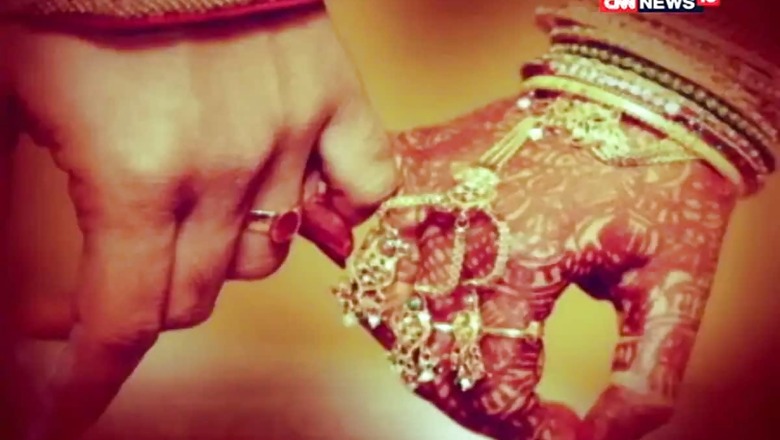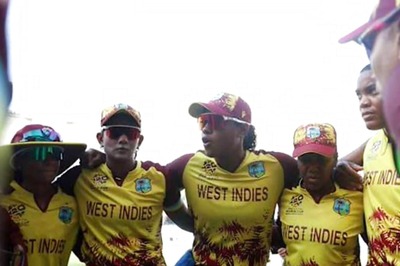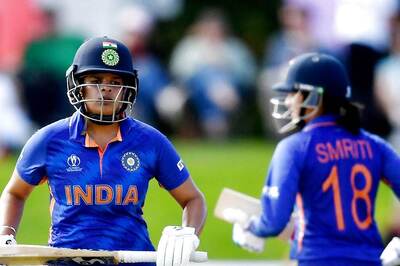
views
The Constitution of India guards interreligious love and marriage, protects personal liberties and provides legal arrangements for the same, experts say. Against this backdrop of constitutional safeguards, various state governments like Haryana and Uttar Pradesh have decided to frame laws against the so-called practice of ‘love jihad’ with Madhya Pradesh proposing a provision for five years’ jail term for ‘violators’.
Constitutional experts News18.com spoke to pointed out that with ‘love jihad’ being a conspiracy theory, having no evidence, the moves by the states are against the spirit of the supreme law of the land – the Constitution – which guards one’s liberty to choose a partner from any faith and caste.
At the time a Tanishq ad was pulled down about a month ago after there was a social media outcry over it for allegedly encouraging ‘love jihad’, Faizan Mustafa, vice-chancellor of the National Academy of Legal Studies and Research (NALSAR) uploaded a video explaining how the uproar over ‘love jihad’ is not in consonance with the values of the Constitution.
“Marrying somebody is purely a private decision, and the state has no concern with this. The whole issue is about Article 21 of the Indian Constitution that gives ‘protection of life and personal liberty’. No person shall be deprived of his life or personal liberty except according to procedure established by law,” said Mustafa. He added that in India, the Constitution gives the freedom of making a choice, “and under that every girl and boy has the right to choose his or her partner”.
He said that since the Constitution encourages love and marriage across faiths and beliefs, the Special Marriage Act, 1954 was framed. “What is the Special Marriage Act? We call it court marriages, but it is a constitutional arrangement to ensure people exercise personal liberty in choosing a partner.”
The Special Marriage Act, 1954, is an Act of the Parliament of India enacted to provide a special form of marriage for the people of India and all Indian nationals in foreign countries, irrespective of the religion or faith followed by either party. “These marriages are valid,” he said.
Mustafa made a point that in many other countries the freedom to marry is advancing where “marriage between two men and two women is valid, while here we are curbing the agency of adults and women”.
It’s appalling, he said, that the “same people want Uniform Civil Code”.
“My argument is that law encourages interreligious marriages. If you want Uniform Civil Code, then we must encourage such kinds of marriages. What is UCC? It is a Special Marriage Act and Indian Succession Act. Under the UCC a person of one religion will be marrying a person of another religion. It is quite appalling that on the one hand, the BJP is advocating for UCC and on the other hand it is raising the bogey of love jihad in some states,” he said. “Love jihad is a political stunt with appeal to a particular constituency.”
Constitutionalist Subhash C Kashyap finds no logic and reason behind formulating an anti ‘love jihad’ law. He said the point that needs to be highlighted is of the 7thSchedule of the Constitution. “If state’s steps contradict the union law, it will not hold before the course of law,” Kashyap said.
The 7th Schedule of the Constitution of India defines and specifies allocation of powers and functions between the union and states. It contains three lists: the union list, the state list and the concurrent list.
Kashyap echoed Mustafa’s views that there are constitutional provisions to ensure marriage and punish coercion. “There are provisions in the Constitution to check forcible conversions or coercion of any kind. Will is not barred by law. But if there is force in marriage or conversion then it is already a crime; we have provisions to check these incidents in any case,” he said and added that there are legal advisors who must have informed the state governments about the weaknesses in legislating on ‘love jihad. But the BJP-ruled states are still doing it because “love jihad is a political tool. They know about its baselessness but want to make a political point out of it,” he said.
The fear of Muslim men marrying or courting Hindu women is almost a hundred years old. Mustafa said many incidents on the issue of ‘love jihad’ date back to the 1920s and were used as a ploy to demonise Muslim men on the one hand and curb the agency of Hindu women on the other.
Past incidents when such preventive measures were taken to stop Hindu women from meeting Muslim men are plenty, said Mustafa, narrating that in 1925 the Hindu Mahasabha, Banaras, established a volunteer squad to prevent Hindu women from marrying Muslim men. There were notices put up in public places of Allahabad and Jaunpur for keeping tabs on Hindu women. This was all to restrict their choices. In 1928, the Pratap newspaper carried an article with focus on Faizabad where Hindu women were allegedly being seduced by Muslim men.
Read all the Latest News, Breaking News and Coronavirus News here
















Comments
0 comment